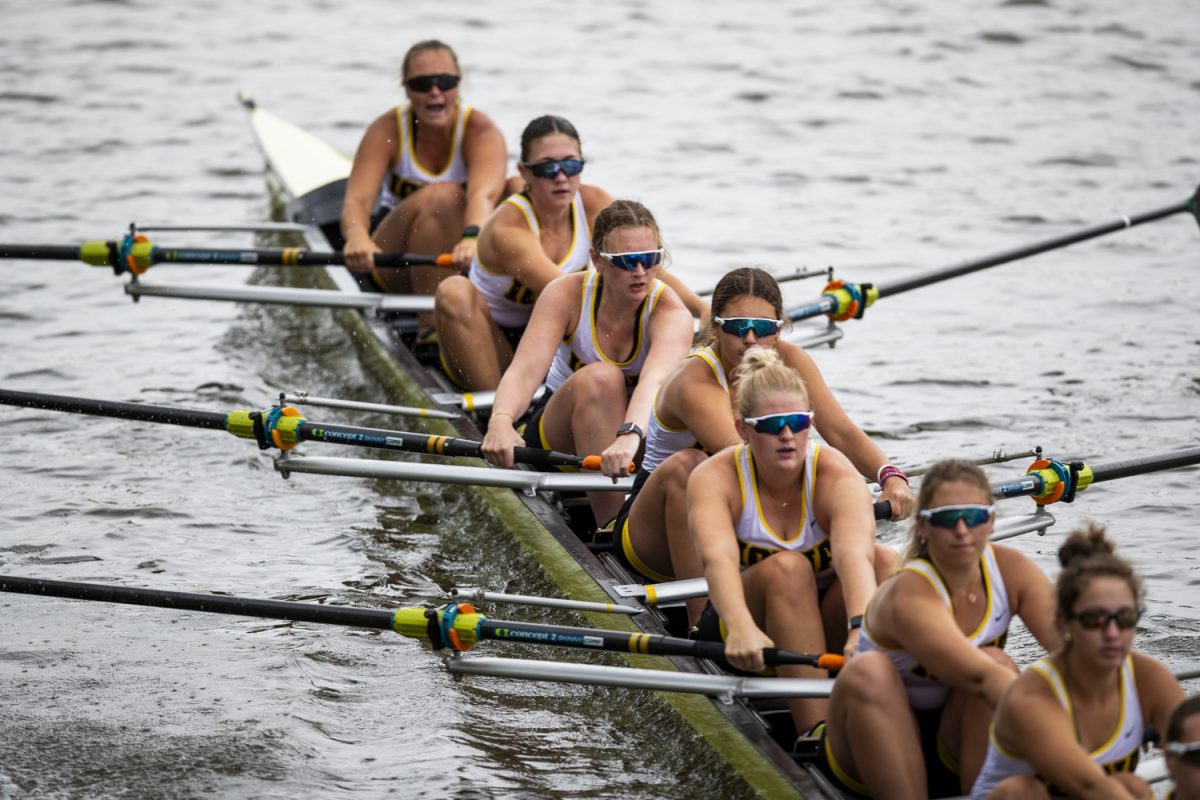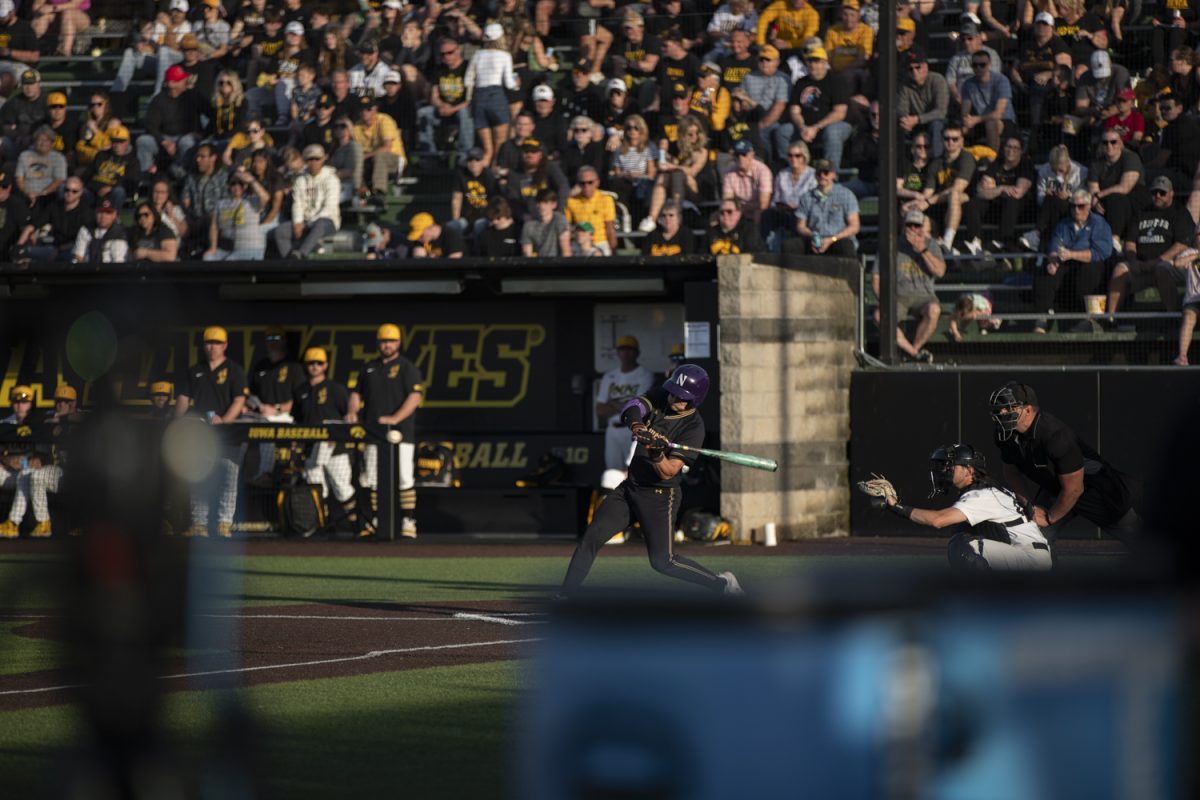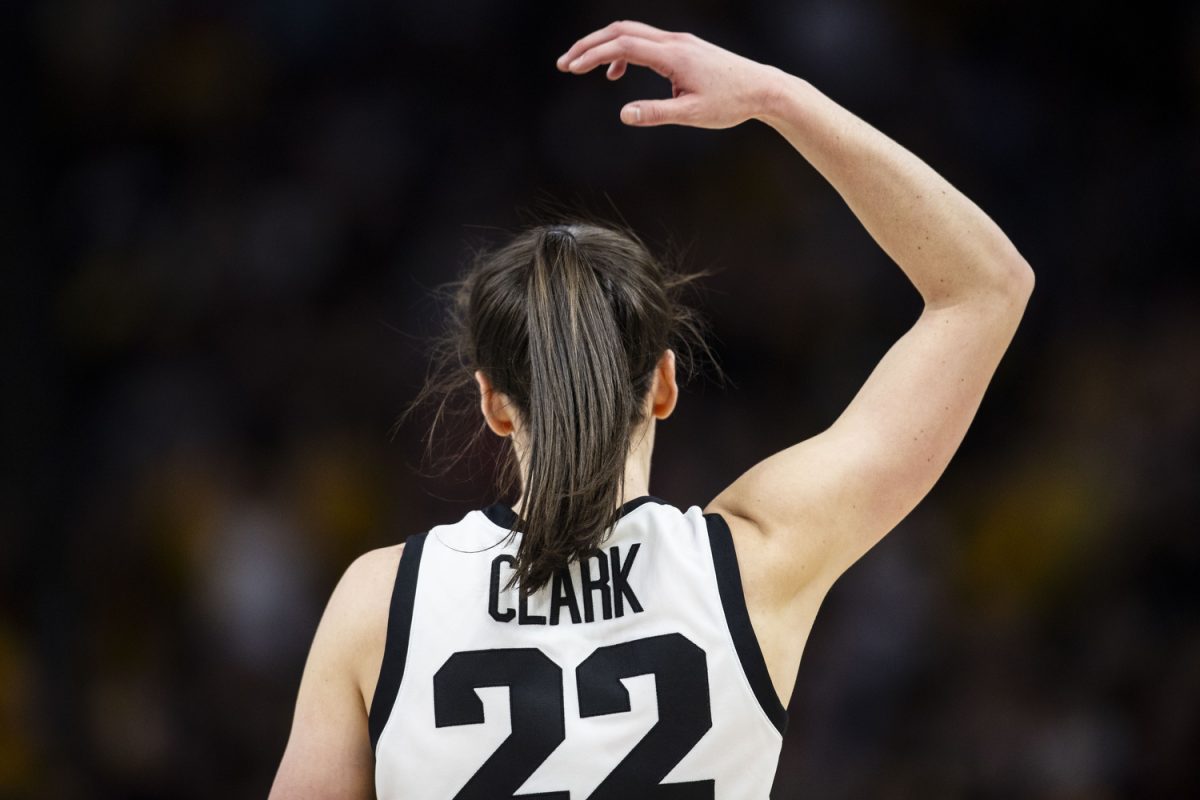Iowa alum Andrea Wickerham has a master’s degree and a law degree, and she has held a number of administrative positions at various universities.
But for the past 11 years, she has made her living off human urine.
Wickerham, who graduated from Iowa in 1983 with a master’s degree in athletics administration, is now a vice president of Drug Free Sport — a privately owned small business that oversees drug testing for the NCAA and a number other athletics institutions.
She returned to her alma mater this past weekend and advised future entrepreneurs about starting their own businesses — especially in the sports industry.
Lynn Allendorf, the managing director of the Bedell Entrepreneurship Learning Laboratory, said Wickerham was the perfect person to speak to Iowa’s aspiring entrepreneurs, and Drug Free Sport is a good example of a business success story.
The company started 11 years ago as an outsourcing program for NCAA drug testing. With the help of Wickerham and 30 other employees, the business has grown to include clients ranging from state high school programs to the NFL and NBA.
UI senior Eric Crawford, a Sports Studies major with entrepreneurial aspirations, said his meeting with Wickerham opened his eyes to different avenues of the sports industry.
“She was the perfect person for me to talk to,” he said. “I learned about how big the sports industry really is and about the direction she took to get to where she is today.”
Wickerham said her background and passion for athletics sparked her interest in working for Drug Free Sport. After playing three sports at Ursinus College in Pennsylvania, she didn’t abandon athletics following graduation.
She became a college coach and athletics official at a number of universities including Harvard, Michigan, and Iowa. Her firsthand experience as both a collegiate athlete and a coach made her an advocate for “clean competition.”
She said administering urine tests to athletes makes her seem like the “bad cop” in the industry, but her goal is to use drug testing as a deterrent rather than a means to catch athletes and end their careers.
“I get depressed at times thinking that I work for a company that makes money on the dark side of sport,” Wickerham said. “But I have great passion and empathy for young people who are tempted to smoke dope or take prescription drugs, and I think drug testing helps them say no.”
Aside from administering tests and results, Wickerham’s company takes the responsibility of educating student-athletes and coaches on the dangers of drugs — both “street” and performance enhancing types.
Wickerham noted that since the NCAA’s year-round drug-testing program started in 1990, the use of steroids and other drugs has dropped dramatically.
In recent years, only 1.5 to 2 percent of athletes have received positive test results.
In addition to the year-round program that randomly tests 13,500 of the 500,000 NCAA athletes, the championship drug test program collects urine samples from all athletes competing in postseason events.
This means Wickerham and her coworkers attend all college championship events for free, but they see a much different side of these competitions.
“March Madness for Drug Free Sport is very different from what people think it is,” Wickerham said. “We see about 15 minutes of games, then about eight hours of urinals.”






